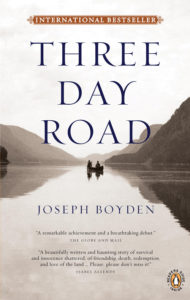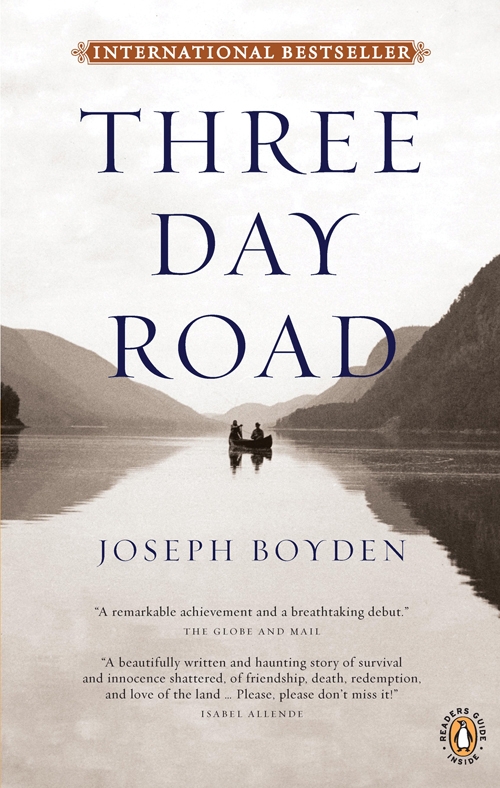Giller prize-winning autobiography writer gives a history lesson and refreshing perspectives
Emilia Vieni
Contributor

An excited audience waited patiently Friday, March 9 in a Vanier lecture hall for the highly acclaimed Giller prize-winning Canadian author Joseph Boyden to take the lectern.
Boyden, author of Through Black Spruce and Three Day Road, visited York on behalf of the Canadian studies group as part of the “Canada: Like You’ve Never Heard It Before” speakers series. He came to discuss the ideas and perspectives in his novels, and to shed some light on Canada then and now. He wanted to create an understanding of the Métis and their leaders and the contributions made by them during war and throughout history. As Boyden stepped up in front of the crowd, he began speaking with a smile and light humour, but as he got onto the topic of his novel and the history of the First Nations people, his tone had changed to a more serious pitch.
He began his talk by discussing historical figures Louis Riel and Gabriel Dumont, two men who shaped Canadian history. Dumont, a Métis leader and brilliant strategist, sought out Riel in an attempt to bring pressure to the Canadian government to bring awareness of Métis hardships to the population.
While well-respected, Riel was an odd character who many thought was insane. Riel had presented the federal government with very reasonable requests for the Métis people that were denied by Ottawa. Dumont and Riel then led a rebellion against the government, but after putting too much faith into Riel—which was his downfall—the Métis ended up losing against overwhelming odds. Louis Riel was then charged with high treason and hanged.
Boyden’s Ojibwe roots fostered his strong interest in Canadian history. He said that despite the fact that the First Nations were mistreated by the settlers and the government, they still agreed to assist the white population in the First World War in 1914 in order to gain approval and a sense of community. Even though they put their lives on the line and gave assistance when the government didn’t deserve it, they were still looked down upon and had little to no rights in their own land after World War I.
Boyden and his novels help to educate new Canadian generations about our past and to open peoples’ eyes to the history of the First Nations people, the true historical inhabitants of Canada. When using the term “First Nations people,” it is important to note that it encompasses all of the various Aboriginal groups, such as the Métis and the Ojibwe. In regards to the term, Boyden says, “I wish we could call people from where each is from, but I know that is unrealistic.”
I was glad to have been able to not only listen to Boyden talk, but also to learn more about Canadian history. After his talk, I was curious to know Boyden’s thoughts on modern day Canada, and his response to my question was similar to how I—and possibly many others—are feeling as of now.
“I feel torn in some ways,” he says. “We are technologically advanced, but at the same time we are constantly consuming valuable resources which in the end are finite. By discovering new ways to power homes, such as wind energy and solar power, each home could eventually be able to efficiently power itself. In terms of the Canadian population, I think we are slowly but surely beginning to come together as a group and understand each other.”
Once Boyden finished his talk, he didn’t even get to the reception room before avid readers eagerly approached him with their questions about his novels and his opinion.
It’s comforting to know that Canada as a nation does have its own prominent cultural identity through the First Nations people, a resilient group that, despite hardships faced in the past, have always stayed true to themselves and their beliefs.


